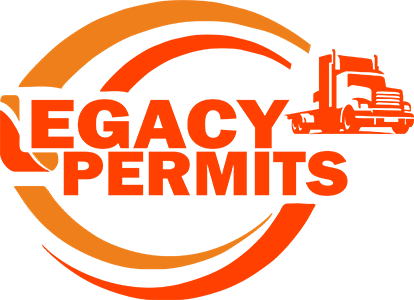FMCSA COVID-19 Drug & Alcohol Testing Guidance.pdf
DISRUPTIONS TO DRUG AND ALCOHOL TESTING DUE TO THE CORONAVIRUS DISEASE 2019 (COVID-19) PRESIDENTIALLY DECLARED NATIONAL EMERGENCY[1]
To help ensure the safety and well-being of everyone, while also ensuring that we continue to meet our mission, we are providing the following guidance in effect until May 30, 2020 (90 days from the date proclaimed as the beginning of the national emergency in the President’s Proclamation on Declaring a National Emergency Concerning the Novel Coronavirus Disease (COVID-19) Outbreak), unless the national emergency is extended beyond that date.
Please click on this link to access information, provided by DOT’s Office of Drug and Alcohol Policy Compliance (ODAPC), about the impact of the COVID-19 national emergency on DOT drug and alcohol testing requirements for employers, employees, and service agents. The Federal Motor Carrier Safety Administration (FMCSA) regulations provide reasonable flexibility to motor carrier employers and their drivers subject to testing under 49 CFR part 382 to address the COVID-19 national emergency. FMCSA is aware that, as described in ODAPC’s guidance, disruptions caused by the COVID-19 national emergency are interfering with, and in some cases, may be preventing, employer and driver compliance with current drug and alcohol testing requirements. In addition to the guidance provided by ODAPC, see below for further information specifically related to FMCSA’s testing requirements.
Recommended actions for FMCSA-regulated employers unable to conduct:
• Random Testing – You are required by 49 CFR 382.305(k) to ensure that the dates for administering random alcohol and controlled substances tests are spread reasonably throughout the calendar year. DOT guidance further recommends that you perform random selections and tests at least quarterly.
For further guidance see https://www.fmcsa.dot.gov/sites/fmcsa.dot.gov/files/docs/Best_Practices_for_DOT_Random_Drug_and_Alcohol_Testing_508CLN.pdf.
If, due to disruptions caused by the COVID-19 national emergency, you are unable to perform random selections and tests sufficient to meet the random testing rate for a given testing period in order to achieve the required 50% rate for drug testing, and 10% for alcohol testing, you should make up the tests by the end of the year. You should document in writing the specific reasons why you were unable to conduct tests on drivers randomly selected, and any actions taken to locate an alternative collection site or other testing resources.
• Pre-Employment Testing – If you are unable to conduct a pre-employment controlled substances test, in accordance with 49 CFR 382.301(a), you cannot allow a prospective employee to perform DOT safety sensitive functions until you receive a negative pre-employment test result, unless the exception in 49 CFR 382.301(b) applies.
• Post-Accident Testing – You are required to test each driver for alcohol and controlled substances as soon as practicable following an accident as required by 49 CFR 382.303. However, if you are unable to administer an alcohol test within 8 hours following the accident, or a controlled substance test within 32 hours following the accident, due to disruptions caused by the COVID-19 national emergency, you must document in writing the specific reasons why the test could not be conducted, as currently required. See 49 CFR 382.303(d) and FMCSA Guidance at: https://www.fmcsa.dot.gov/regulations/drug-alcohol-testing/commercial-motor-vehicle-operator-involved-accident-which
• Reasonable suspicion testing – You should document in writing the specific reasons why the test could not be conducted as required; include any efforts you made to mitigate the effect of the disruption, such as trying to locate an alternative collection site. This documentation should be provided in addition to the documentation of the observations leading to a test, as required by 49 CFR 382.307(f). Follow current regulations addressing situations in which reasonable suspicion testing is not conducted, set forth in 49 CFR 382.307(e)(1), (2).
• Return-to-duty (RTD) testing – In accordance with 49 CFR 40.305(a), you must not allow the driver to perform any safety-sensitive functions, as defined in 49 CFR 382.107, until the RTD test is conducted and there is a negative result.
• Follow-up testing – If testing cannot be completed, you shoulddocument in writing the specific reasons why the testing could not be conducted as in accordance with the follow-up testing plan; you should include any efforts you made to mitigate the effect of the disruption, such as trying to locate an alternative collection site. You should conduct the test as soon as practicable.
FMCSA-Regulated Employees:
Please follow the ODAPC guidance, as set forth below, and available at: https://www.transportation.gov/odapc/compliance-with-dot-drug-and-alcohol-testing-regulations.
- If you are experiencing COVID-19-related symptoms, you should contact your medical provider and, if necessary, let your employer know about your availability to perform work.
- If you have COVID-19-related concerns about testing, you should discuss them with your employer. FMCSA joins ODAPC in suggesting that employers respond to employee concerns in a sensitive and respectful way.
• As a reminder, it is the employer’s responsibility to evaluate the circumstances of what may be considered an employee’s refusal to test and determine whether or not the employee’s actions should be considered a refusal as per 49 CFR § 40.355(i).
[1] This guidance document does not have the force and effect of law and is not meant to bind the public in anyway. This guidance is intended only to provide clarity regarding existing requirements under the law.Last updated: Tuesday, March 24, 2020
SOURCE: FMCSA Website: https://www.fmcsa.dot.gov/emergency/fmcsa-covid-19-drug-alcohol-testing-guidance
